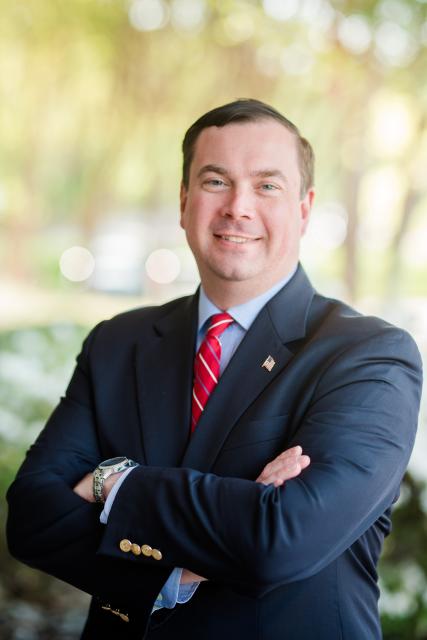2024 Virginia General Assembly Wrap-Up
Legislative Update - March 2024
Thanks to the almost two hundred bankers from across Virginia who attended the annual VBA Banker Day back at the beginning of January. In addition to hearing remarks from Governor Glenn Youngkin and checking out the new General Assembly Building, bankers were able to speak directly to state legislators on the key policy decisions impacting banking this session. With one-third of the General Assembly new to their office, this was a critical opportunity to educate them – and remind returning officials – on the importance of a healthy, well-regulated banking industry in Virginia.
With the adjournment of the legislature this past Saturday, the 60-day session has concluded and we can examine the outcomes for our industry. As those who have kept abreast of the news in the Legislative Bulletin, attended Banker Day, or participated in our grassroots alerts over the last two months know, our fiercest battle was in opposition to the credit unions’ push to hold public funds in the form of deposits. House Bill 1205 from Delegate Alfonso Lopez (D-Arlington) was submitted on behalf of the Virginia Credit Union League (VCUL) and, as introduced, would have allowed every credit union in Virginia to take in deposits from the Commonwealth, localities and state governmental entities.
Our message focused on three key differences between banks and credit unions. First, we pointed out the incongruity of allowing tax-dodging credit unions to take in, and financially benefit from those same tax dollars to which they do not contribute. Not only that, but funds shifted from banks to credit unions would negatively impact the revenues from the bank franchise tax, eighty percent of which go directly to localities. The other salient message was a counter to the credit unions’ argument that they would keep the funds local and reinvest in their communities. This provided the opportunity to educate lawmakers on the Community Reinvestment Act (CRA), where banks are required to actually reinvest and provide banking services in their communities, including low-to-moderate income locations. Not being subject to CRA, credit unions can claim they do, but have no accountability to state or federal regulators or their community to actually put their dollars back to work for that community. In fact, credit unions have proven time and again that they will use their advantages to grow and compete directly with tax-paying banks instead.
With 87 banks, the majority of which are community banks, serving as qualified public depositories, there is no lack of competition for localities to shop for high-quality banking services for their reserves. And with 1,800 bank branches covering every county and city, there is no lack of access for the government to find a willing partner to secure their funds. However, if you listened to the testimony from the bill’s patron, you would have thought there were vast swaths of Virginia with tumbleweeds blowing through abandoned community bank branches with the white knight credit unions charging in to save the day.
Despite a vigorous lobbying campaign from the VCUL, they knew they didn’t have the votes to advance the bill out of the subcommittee it was assigned to in the House. Receiving pushback from legislators about it applying to the nation’s largest credit union – one in the news recently for potential unfair lending practices – the legislation was amended to apply only to those with a “low-income designation,” something handed out by NCUA like candy and applicable to 60% of all credit unions in Virginia, including eight of the ten largest. With no path forward in subcommittee, VCUL convinced friendly legislators to have the bill discharged to full committee without a vote, in a desperate attempt to bypass the normal legislative process. At the end of the day when the vote was taken, 13 members voted against the bill, while 9 voted for it, delivering a successful outcome for Virginia banks.
On the proactive side, legislation to allow account holders to designate a trusted contact for the bank to contact if there is a good faith belief the customer is being subject to elder financial exploitation advanced. Also included in that legislation, sponsored by Delegate Michelle Maldonado (D-Prince Williams) and Senator Barbara Favola (D-Arlington), was language mirroring the federal Senior Safe Act related to voluntary employee training to identify and prevent elder financial abuse. In addition, we advanced bills that allow for a more efficient process for terminating a trust without court approval. Also successful was our effort to fund the implementation of the electronic filing of the Bank Franchise Tax, which will go into effect next January.
Your VBA government relations team also worked to ensure legislation beyond the credit union bill that would negatively impact our industry did not advance. We successfully amended a bill that adds burdensome requirements on subordinate mortgage lienholders going to foreclosure to exempt banks specifically. Legislation that would have allowed for residential green energy (PACE) loans – disfavored by the secondary market – was stopped while CFPB contemplates consumer protection and the ability to repay rulemaking. Working with other business interests, legislation to completely ban the use of noncompete clauses in employment agreements was defeated in a bipartisan vote on the Senate floor.
Now that the General Assembly session is finished, Governor Youngkin will have his bite at the apple to sign, amend or veto legislation, including the Commonwealth’s biennial budget. The VBA has communicated our position on the bills above, urging the Governor to sign our proactive agenda. Later this summer, the VBA will send out our annual General Counsel Report where DeMarion Johnston compiles all the relevant new laws, most of which will go into effect on July 1.
In the meantime, we look forward to seeing Virginia bankers next week at the annual VBA/ABA Washington Summit, where we will continue important conversations at the federal level.


